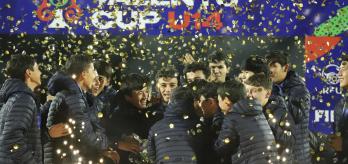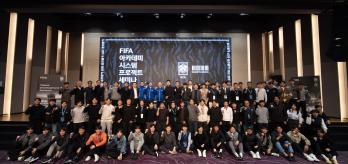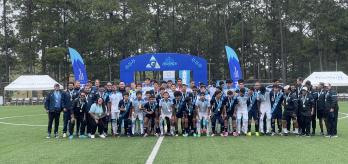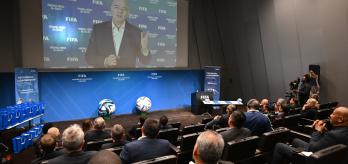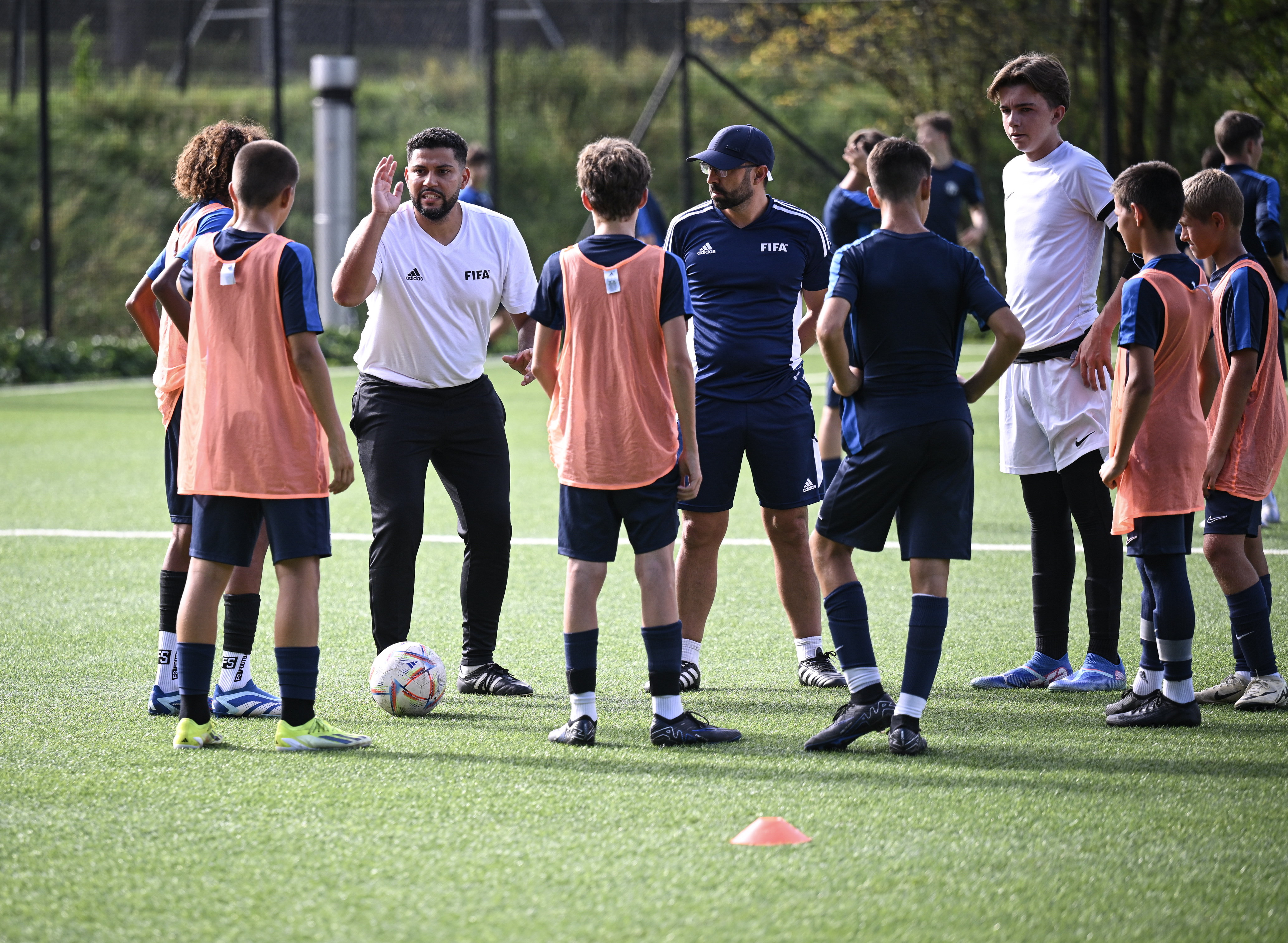
At the FIFA Football Summit in Jeddah, Saudi Arabia, in December 2023, Wenger announced the goal of having 75 elite academies across the world by the end of 2027 as one of the cornerstones of the TDS, which is also reflected in FIFA’s Strategic Objectives for the Global Game: 2023-2027.
Introduced in 2021 to give every girl and boy the opportunity to realise their potential and provide a pathway to the professional game for the most talented regardless of where they live and their financial situation, the TDS is now gaining momentum.
“It’s becoming a big machine now. It is moving football forward in every single country. Let’s not forget that the core of our thinking is to give every talent in the whole world a chance,” Wenger explained. “I must say, when I look back to 2021, when we started to think 'What can we do for football in the world?' and where we are today, even I am quite surprised about how quickly it’s all gone – and, of course, it’s not enough; we always want to do more. But I would like to thank everybody who has contributed to this project because they have worked very, very hard and things look very positive.”
To ensure the optimal implementation of the TDS, which has been rolled out in 176 MAs to date, FIFA sent TDS Leads to assess the criteria that needed to be fulfilled to put the initial phase of the project in place.
The next step is to assign FIFA Talent Coaches to each Member Association, where they will collaborate with local stakeholders to develop a domestic coaching network. Some 22 have already been deployed and they joined 14 new colleagues for a week-long workshop at the FIFA headquarters in Zurich to build personal and professional connections that will provide a fundamental pillar of the TDS.
“We have conducted several webinars beforehand to talk about all of the organisational stuff, so that we can focus completely on what’s going on on the pitch this week,” explained Ulf Schott, FIFA’s Head of High Performance. “Because this is where our Talent Coaches should inspire, on the one hand the talent, and on the other hand other coaches too who are working with them, and should then [replicate] our idea, of what we want to achieve with an academy in a country.”
Wenger co-presented a discussion entitled “The Modern Game and the Future Player”, while safeguarding, player observation and rotation, practical coaching sessions and the principles of elite player development were among the other aspects of the workshop. The ultimate goal is to ensure that a uniform coaching methodology and philosophy are employed across all TDS academies.
“We’ve got FIFA principles of how we want to work, how we coach and then with that then you obviously have to develop that within the context of your own MA,” said Conor Marlin, the Talent Coach working with the Bahrain Football Association (BFA). “Every country is different, every starting point is different, there are variations from people’s age groups they’re working with and so on, but for me in Bahrain the initial part is introducing a high-performance environment and trying to get the players to understand the level they need to train at to then be able to compete, because we talk about ‘find, train, play’.”
The FIFA U-17 World Cup™ and FIFA U-17 Women’s World Cup™ have now both been made annual competitions and have been expanded as of 2025 – the boys’ tournament to 48 teams, the girls’ to 24 – in line with FIFA’s ambition of giving the very best young players the chance to regularly test themselves against their peers globally. A similar philosophy has been applied to the TDS coaches, who will equip young players with the tools they need to complement their talent.
“This week is incredibly productive for us because we have a training process with a truly new programme, which is really coming to the fore. This growth, with many more countries and new colleagues, broadens our minds and perspectives,” said Julián Villar-Aragón Expósito, the Talent Coach who works hand-in-hand with the Costa Rican Football Association (FCRF).
“Being surrounded by so many professionals and experts in each area is truly enriching. For those who are joining us anew, it is a fantastic week to develop through this exchange of our enthusiasm in teaching and learning constantly. We enrich each other, considering that we are all – and the level is such – a very professional group. Sharing this experience will solidify and strengthen the growth of the programme.”
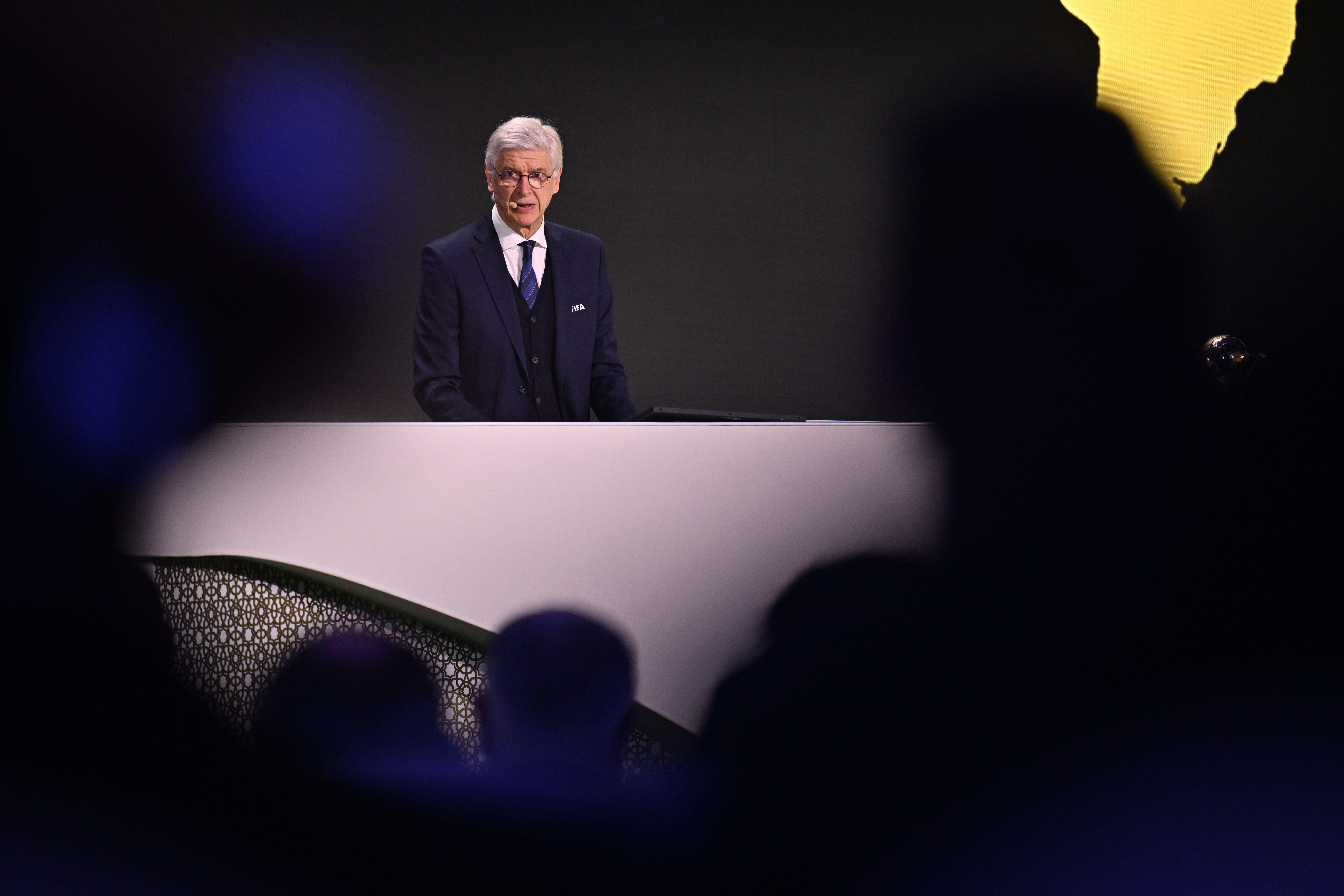
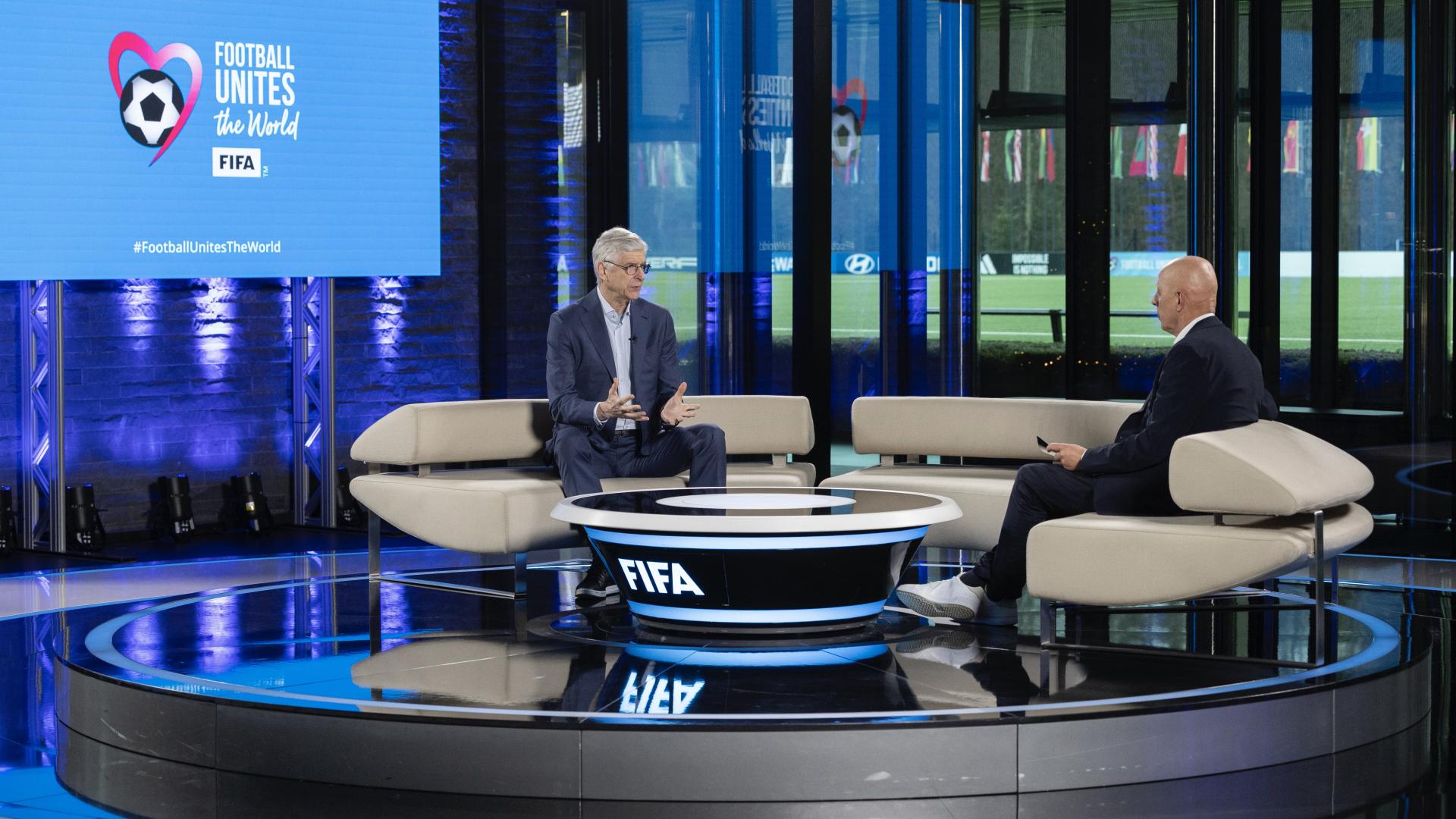





.variant64x64.JPG)




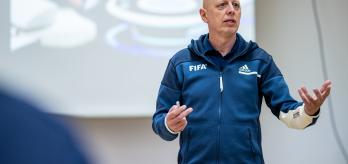

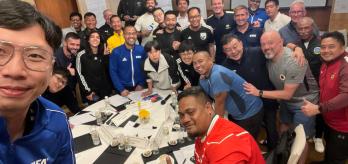
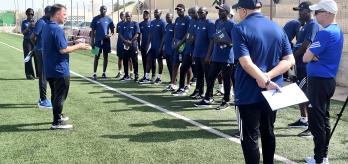
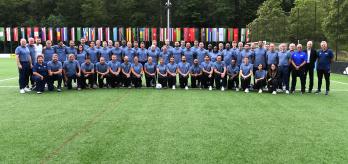
.variant348x164.JPG)
